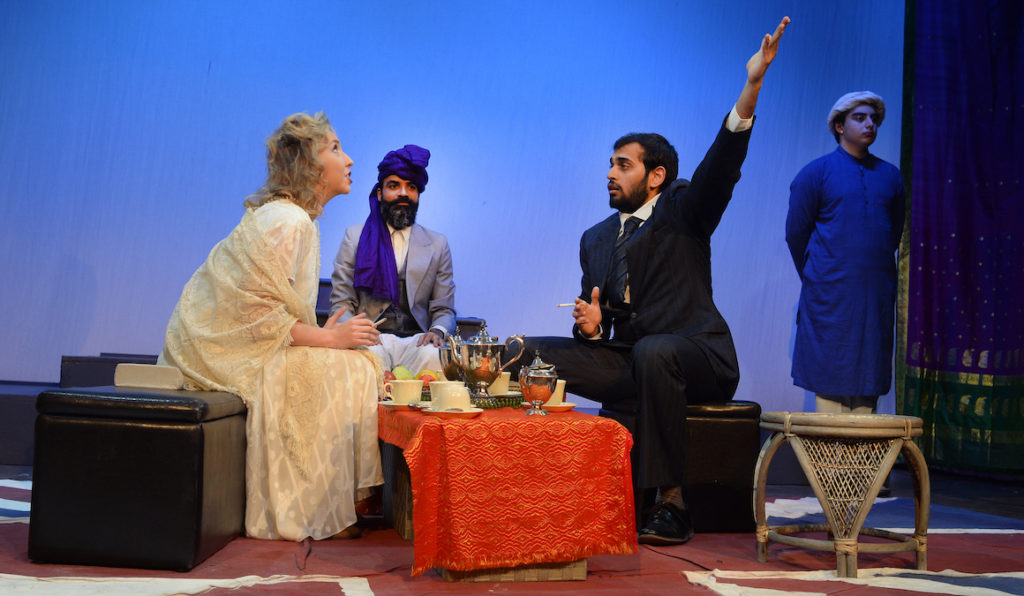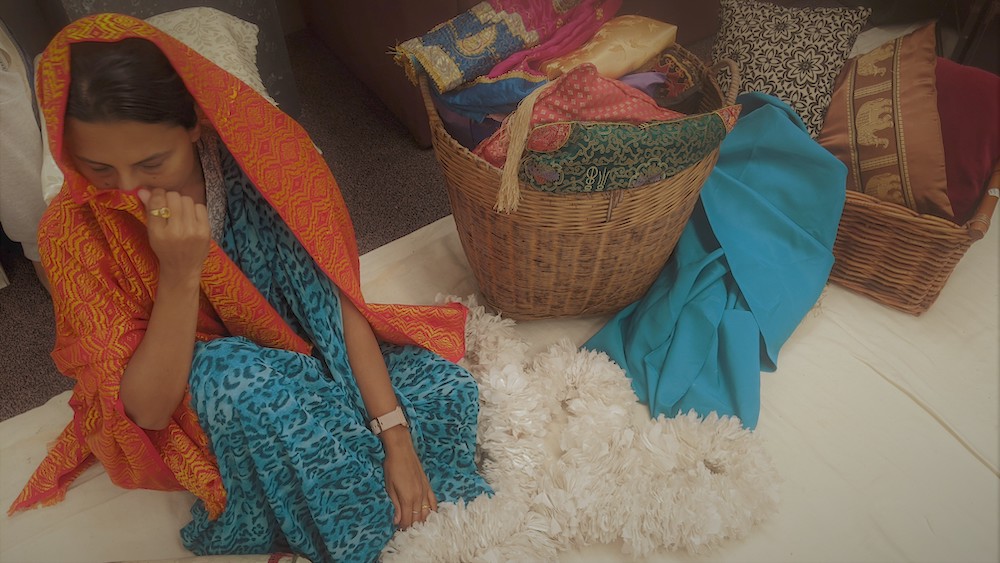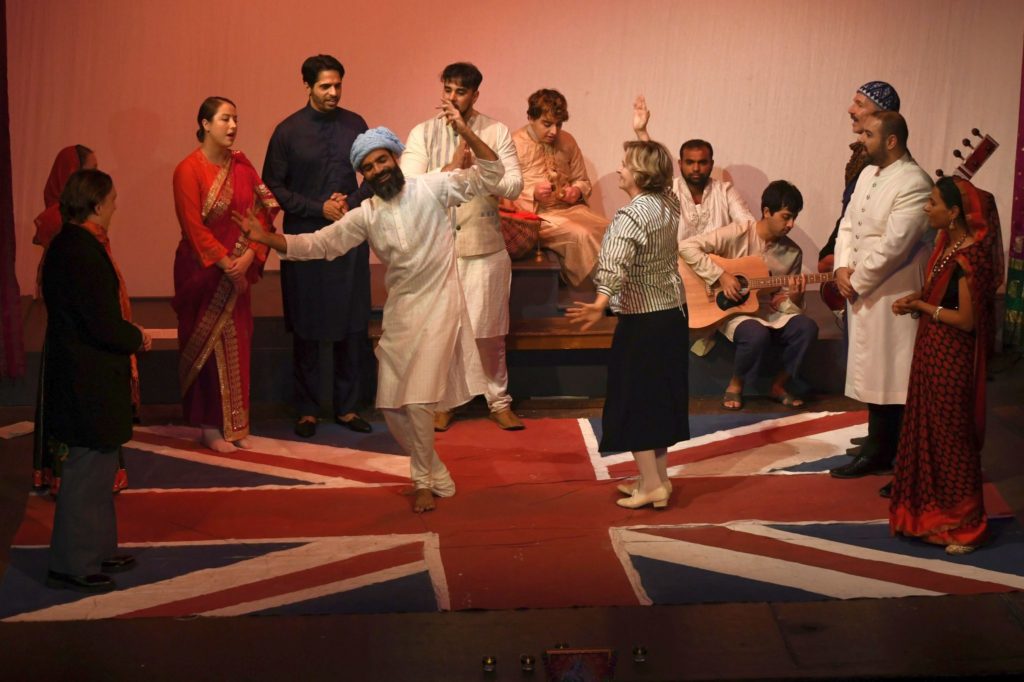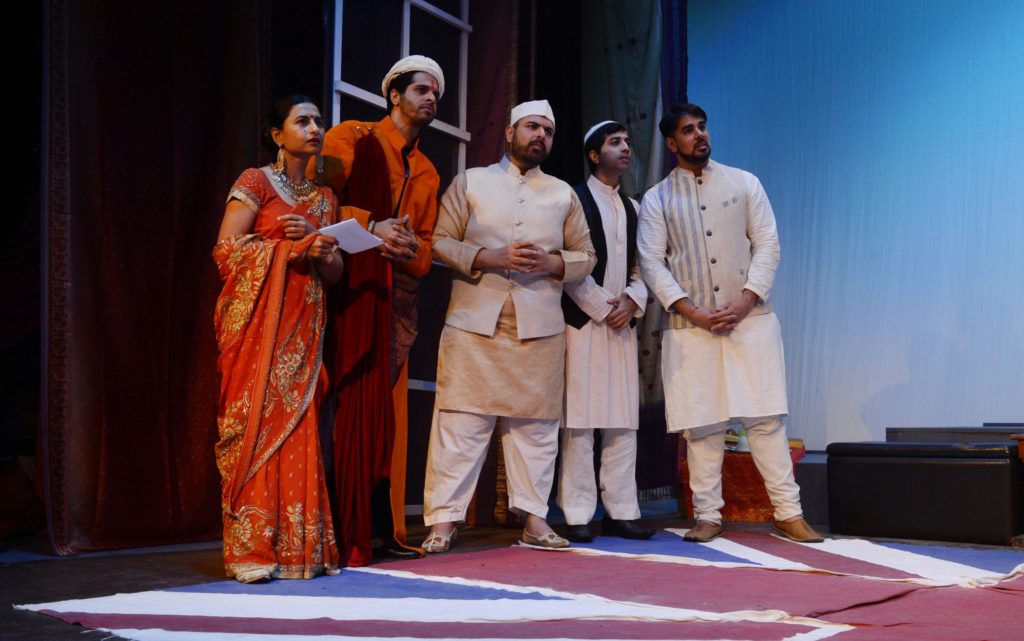‘A Passage to India’ : a great passage to multicultural success

By Neena Badhwar
Genesian Theatre (GTC) in Sydney has been running a two-and-a-half-hour play, an E M Forster’s novel adaptation by Martin Sherman of ”˜A Passage to India’. It is being staged till the 19th of June and is drawing a great number of audience each day. The play is one of the first having used local multicultural actors, a mix of British, Indian and other nationalities. The story is a period drama depicting life of British officers working in India during the British Raj. The British families have the same dilemmas as in any other community of finding British girls as wives for British officers holed up in hot yet exotic India. India holds an intrigue and curiosity as a country, its mystique, the elephants, the snakes, its mysticism and spirituality and its people as such. Its tales back home used to interest young men from the isles. This classic tale that makes India its backdrop with officers with their colonial attitude who are totally divorced from the masses they rule.
Play’s director Mark Nagle says that the play was in the pipeline for almost two years having been delayed due to the onslaught of Covid-19. He found it difficult to find big cast that was required and due to the delays it was difficult to keep them interested all the way through, “I am delighted to do a play which tells a story inviting new faces into GTC. It opens the doors for Asian actors in roles that may help bring more equality for example the actors don’t always have to be Caucasian. Mark says that the audience ultimately accepts everything if the stories are compelling enough. “There is a huge Indian diaspora here. We know now that majority of population is not from the British Isle. And that there are many more stories to tell.”

The classic novel based on the imperialist era in times of freedom struggle, its adaptation in play staged in Sydney enacted by a mixed cast required a large number of actors sourced from the Indian community. They make up almost more than half the cast. The scene opens with noises and humdrum of a bazaar in India with Indians, jostling, haggling, arguing with each other and pack up soon as an officer passes by. They are trying to survive, no matter how, under the British rule. The two, the rulers and the ruled at odds culture wise, the British with their snobbishness, under them the Indians with their strong spirit of survival, clever jugadus (resourceful by hook or by crook), India being their home after all. In the fictitious city of Chandrapore land Mrs. Moore and Adela Quested. Then again there are two kinds of British mindset that exist. One, that of the ruler and the other like that of Mr. Fielding (Miles Boland) who is quite friendly with Dr. Aziz ( Atharv Kolhatkar). Godbole’s character played by Gaurav Kharbanda who acted as the Sutradhar (the storyteller) who appears conveniently and connects the dots or perhaps leaves the audience even more confused.. Excellent actor who draws you into the episodes, makes you think, quite detached, yet very much part of the scheme.

Another actor who impressed was in the role played by Susan Jordan of Mrs Moore. Imagine her coming all the way to see her son and trying to matchmake him with Adela Quested (Christiane New). A mother’s great wish to see her son settled. Both Adela and Mrs. Moore want to see India and have become quite friendly having spent months on ship to finally reach Chandrapore. Adela the restless one who happens to befriend Dr. Aziz and asks him to show her Marabar caves where things go totally wrong. Mrs. Moore had tagged along but the old lady is shook to the core by what happens at the caves. Brilliant acting from Jordan, one can see, she’s has had it rough, a sudden realisation of the futility of it all. She boards the ship back home and dies on the way. One knew she has now no will to live.

Rest the scenes were cleverly executed, props easily converted, the elephant sprouting up like a giant from a sheet on the ground, a stool becoming a steering wheel. The cast easily changing outfits or might one say with difficulty, we are told that there was hardly any space behind the curtains. Not only did the Indian cast act well, they did everything to get the story going further. They looked colourful, happy, jovial, obedient in comparison to the uppity British. When checked Taufeeq Ahmed Sheikh said that he played close to 7 or 8 roles in the night. Sweta Kumar looked quite pretty in her Indian outfits.
The play helped us live the journey into the colonial era, that we all still talk about. Did such things happen, and perhaps, are still happening in various other ways.
Mark Nagle’s ”˜A Passage to India’ is when the whole of India stood up against the foreign rule, in the end, the actors all mixed and matched, worked in tandem, boundaries broken, a message much needed in the current times. Let us hope.
Photo credit Craig O’Regan.
Short URL: https://indiandownunder.com.au/?p=16537
